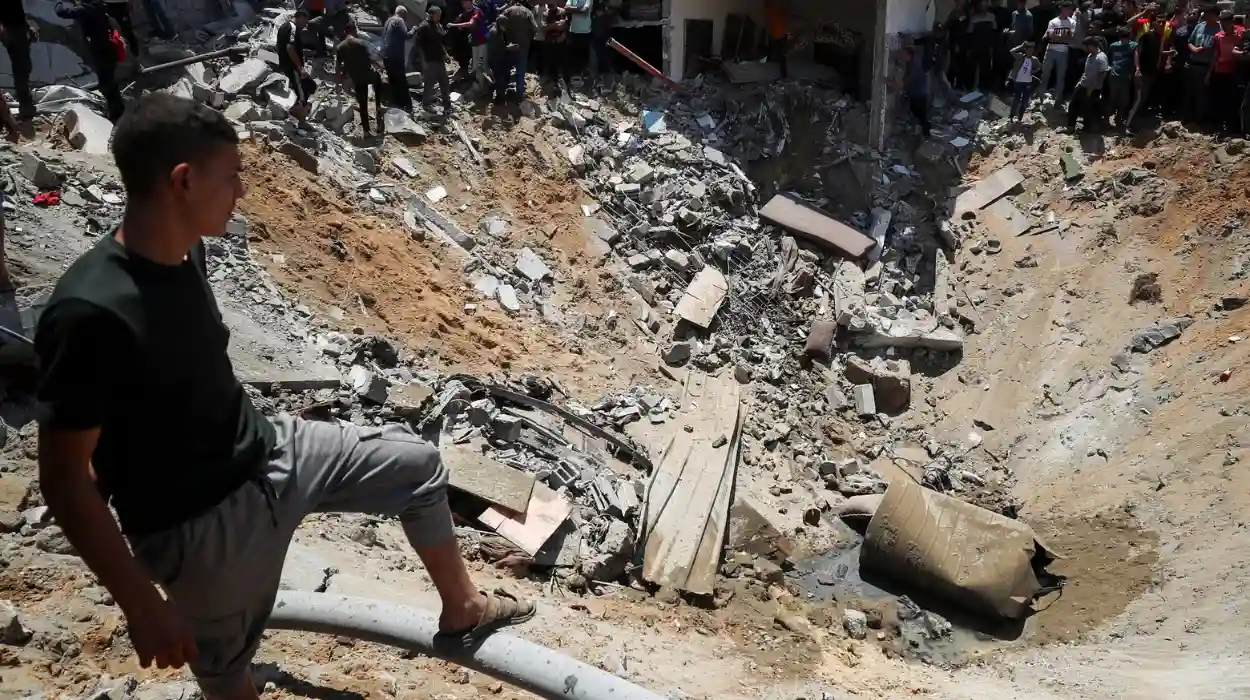UK (Parliament Politics Magazine) – Labour faces growing pressure to back Palestinian statehood at the UN, with party figures warning that delays could undermine hopes for peace.
As reported by The Guardian, both internal and external voices are urging Labour ministers to support the recognition of Palestine at next month’s UN conference, calling it essential for peace and moral responsibility.
What did Alf Dubs say about recognising Palestine?
Alf Dubs, a senior Labour figure and Holocaust survivor, said recognising Palestine would offer its people dignity and strengthen their standing in negotiations.
Lord Dubs stated,
“Even if it doesn’t lead to anything immediately, it would still give Palestinians a better standing,”
adding,
“Symbols matter.”
What did Peter Hain say about delaying Palestinian recognition?
Peter Hain, ex-cabinet minister, warned that delaying recognition until talks end risks making Israel’s illegal occupation permanent.
He said formal recognition must serve as a catalyst, rather than be a consequence of peace talks.
What did Alex Ballinger say about the UK’s leadership on the two-state solution?
Labour backbencher and foreign affairs committee member Alex Ballinger stated Britain must “show principled leadership,” adding,
“We can no longer speak in platitudes about two states while blocking the very steps that could help make one of them real.”
What did Afzal Khan say about Labour’s role in recognising Palestine?
Former shadow minister Afzal Khan called on Labour to uphold its internationalist principles. He said,
“Recognition would now be a positive first step towards securing a peaceful two-state solution, end unlawful settlement expansions and blockades, and unlock the diplomatic and humanitarian pathways to lasting justice.”
Mr Khan warned that Britain may be “dragging its feet” while 147 nations have already recognized Palestine.
What role will the June UN meeting play in Palestine’s recognition?
The initial preparatory meeting in New York set the stage for a UN conference on the two-state solution, scheduled for June 17-20.
Saudi Arabia called on nations to recognise Palestine as a state, insisting, “Recognition should be seen as a precondition for peace, not its product.”
UK and France’s approach toward Palestinian recognition at the UN
The conference is viewed as a key opportunity for nations like France and the UK, which have yet to recognise Palestine.
Emmanuel Macron, the French president, said last month that Paris might join the 147 countries recognising Palestine.
He stated that the decision would be made during the UN conference in New York this June, as part of a broader diplomatic effort.
UK Foreign Secretary, David Lammy, confirmed negotiations with France on Palestine recognition but insisted he won’t back empty gestures.
France and Saudi Arabia, co-chairing the upcoming June UN conference, proposed a concept note stating the main goal is not to “revive” or “relaunch” a never-ending process, but to finally implement the two-state solution once and for all.
Emily Thornberry’s views on the UK’s recognition of Palestine
Emily Thornberry, head of the foreign affairs select committee, said Britain is nearing the time to formally recognise Palestinian statehood.
She added,
“We need to do it with friends. We need to do it with the French. There are a lot of other countries sitting back and waiting.”
What did Chris Doyle say about the UK recognising Palestine?
Chris Doyle, head of CAABU, supported the initiative, calling it overdue and saying action by two permanent UN Security Council members would send a strong message.
He warned that if the UK delays, it may be too late, as Israel is determined to advance the effective annexation of the West Bank.
Key aspects of the Israel-Palestine conflict
- Origins: Began with Zionist migration and the British Balfour Declaration (1917).
- 1948 War: Israel declared; 750,000 Palestinians displaced (Nakba).
- 1967 War: Israel captured the West Bank, Gaza, East Jerusalem, etc.
- Occupation: Israel still controls the West Bank; Gaza is under blockade.
- Intifadas: Major uprisings in 1987-93 and 2000-05.
- Hamas: Took over Gaza in 2007; labelled a terrorist by many.
- 2023–25 War: Hamas killed ~1,200 Israelis; Israel killed ~52,500 Palestinians.
- Ceasefire Collapse: Truce broke in March 2025; fighting resumed.
- International Law: ICJ called occupation illegal (2024); ICC issued arrest warrants.

